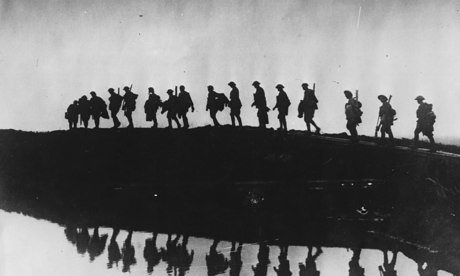Burke's politics were based on his hatred of injustice and the abuse of power. He is noted for his support of the American Colonies against British oppression, the plight of Catholics in his native Ireland and he was against the ideology of the French Revolution. It is in his political pamphlet Reflections on the Revolution in France, published in 1790, that we may find the first use of this terminology for this specific meaning. Burke wrote:
Winston Churchill is credited with the phrase, however he used his version of it in a speech in the
House of Commons in 1935.
“When the situation was manageable it was neglected, and now that it is thoroughly out of hand we apply too late the remedies which then might have effected a cure. There is nothing new in the story. It is as old as the sibylline books.
It falls into that long, dismal catalogue of the fruitlessness of experience and the confirmed unteachability of mankind.
Want of foresight, unwillingness to act when action would be simple and effective, lack of clear thinking, confusion of
counsel until the emergency comes, until self-preservation strikes its jarring gong these are the features which
constitute the endless repetition of history.”
Twenty four years later Aldous Huxley had the same idea when he said
"That men do not learn very much from the lessons of history is the most important of all the lessons of history."
All these great thinkers it seems are all singing from the same hymn sheet.
Samuel Taylor Colridge in 1831 said
"If men could learn from history, what lessons it might teach us. But passion and party blind our eyes, and the light which experience gives us is a lantern on the stern, which shines only on the waves behind us.”
Georg Wilhelm Friedrich Hegel in 1832
“What experience and history teaches us is that people and governments have never learned anything from history,
or acted on principles deduced from it.”
"Were (actually are) all doomed"



 RSS Feed
RSS Feed
